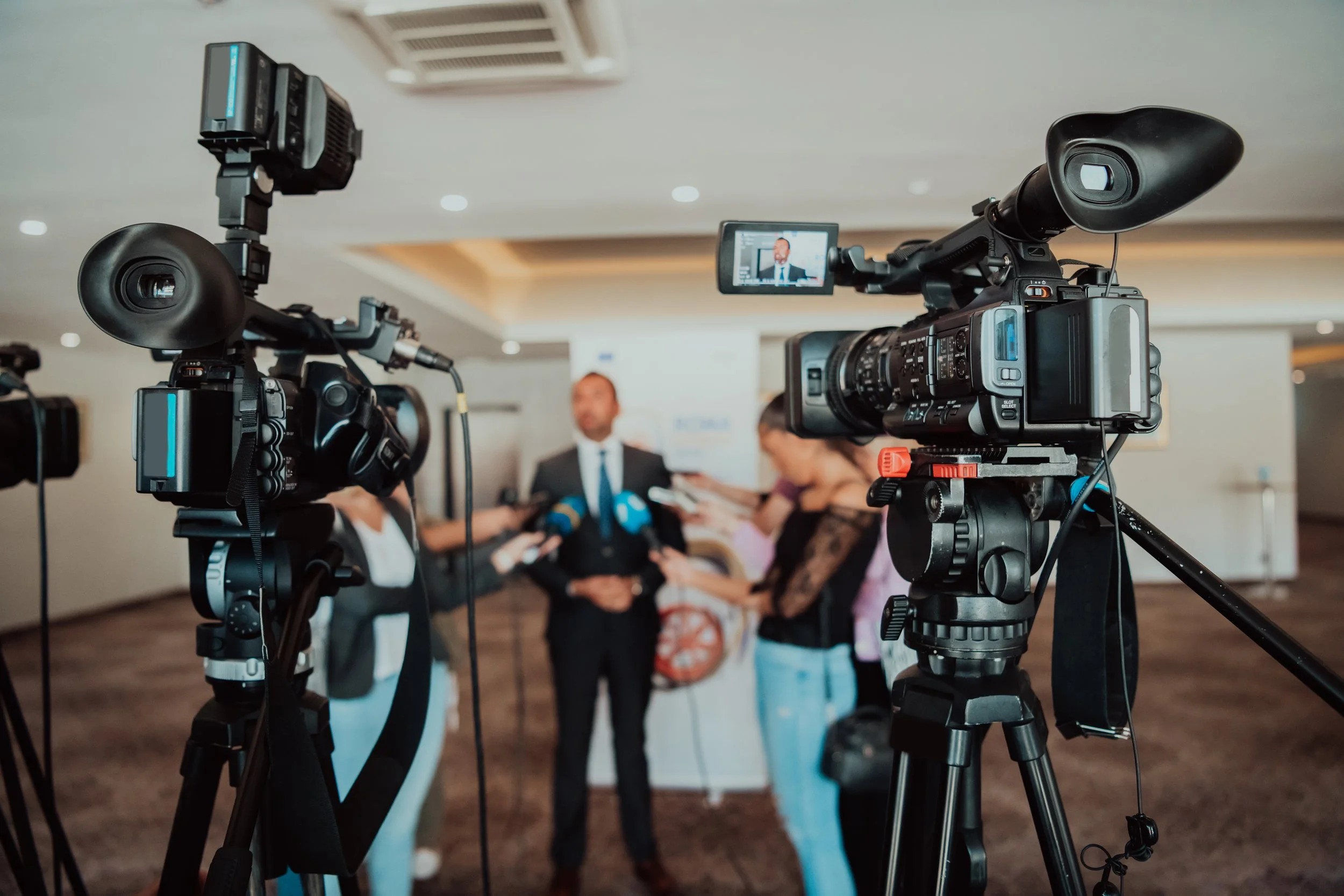Critical to your organization’s strategy to sell products & services, protect organizational reputation, and recover from crises is investing the time to engage traditional media. Unfortunately, many organizations fail to consider the importance that the media maintains in ensuring they achieve their goals and objectives, especially during time of crises.
I recall a time when I directed media training for a Fortune 100 company. Davos was on the horizon and the company was in a full tilt to engage media. The usual controlled chaos ensued in lining up media interviews with the top global media outlets – BBC, Economist, CNN, Fox, yes…the heavy hitters. We had the script penned and practiced. What we had not practiced was the mechanics of an actual interview. Sizing up the CEO who was to be on deck, it was duly noted that he had not done any media interviews much less any with the global majors. During a Davos prep meeting in the midst of discussing who to partner up with, bilateral meetings, and all the Davos-related hoops to jump through, I brought up media training. As many who work in Fortune-ranked companies are aware, the CEOs typically maintain god-like status. Not to say they bad leaders, but more so, when they are set on doing or not doing something, all you can do is ensure you get the interaction penned in an email (for posterity’s sake, of course).
When the big day arrived for the first interview at Davos, as usual, it was a cold day. Unfortunately, for the Fortune-ranked god-like leader, the interview took place outside. First media outlet on deck? BBC. That’s BBC with more than 250 million viewers, BBC. I doubt it helped that when the CEO learned the volume of viewers, it offered no comfort. Needless to write, the interview was less than impressive. And upon arrival back to the HQ, during the Davos de brief – to the CEO’s credit, he offer his mea culpa for not taking media engagement seriously. From that point on, he scheduled prep sessions for any and every media engagement. And I don’t mean a review of questions and answers, I mean a full mock media interview practice session. The full sessions I insisted on because I am a firm believer of Michael Jordan’s philosophy about the importance of practice: “Every day in practice…it was a competition. So when the game comes, there isn’t nothing (sic) that I haven’t already done.” In simpler words, when it comes to media training, you need train, train, train. Make sure that your communications team sets up a mock interview look as close to a real interview as possible. When working with the person who is to be interviewed, be sure to have the lapel microphone clipped on, the chairs positioned towards each other for the interviewer and interviewee, the cameras set up, the boom microphones in place, the camera lights directed toward the interviewee, and the stand in journalist asking expected and unexpected questions. When you repeatedly practice for pending interview, your interviewee is more comfortable, more prepared for the actual interview. This will lead to a better interview outcome for your organization.
As your organization grows, media engagement will become a very important component of the success or failure of your organization. Let the media relations experts at Soteryx integrate with your team to provide the necessary training to ensure your leadership is ready when the cameras roll, the mic is live and the questions are fired.

